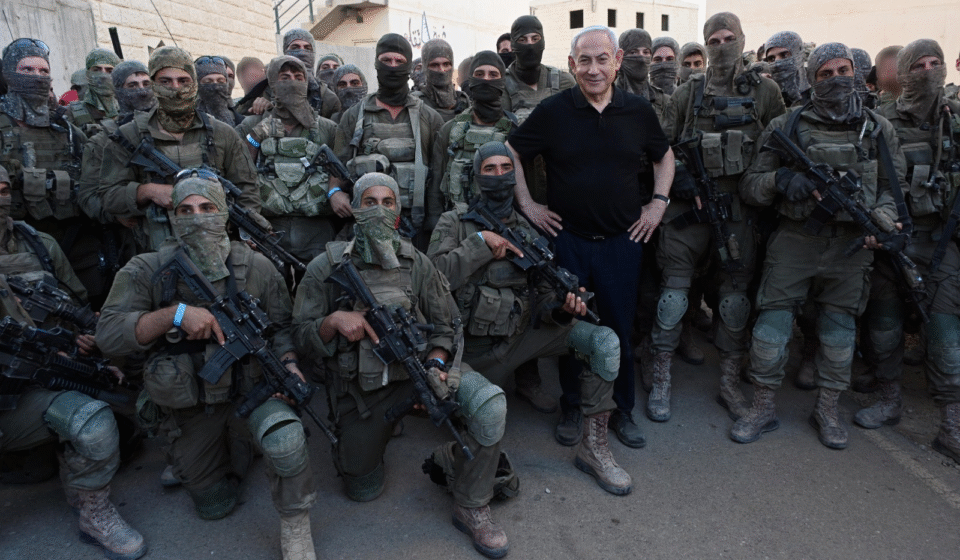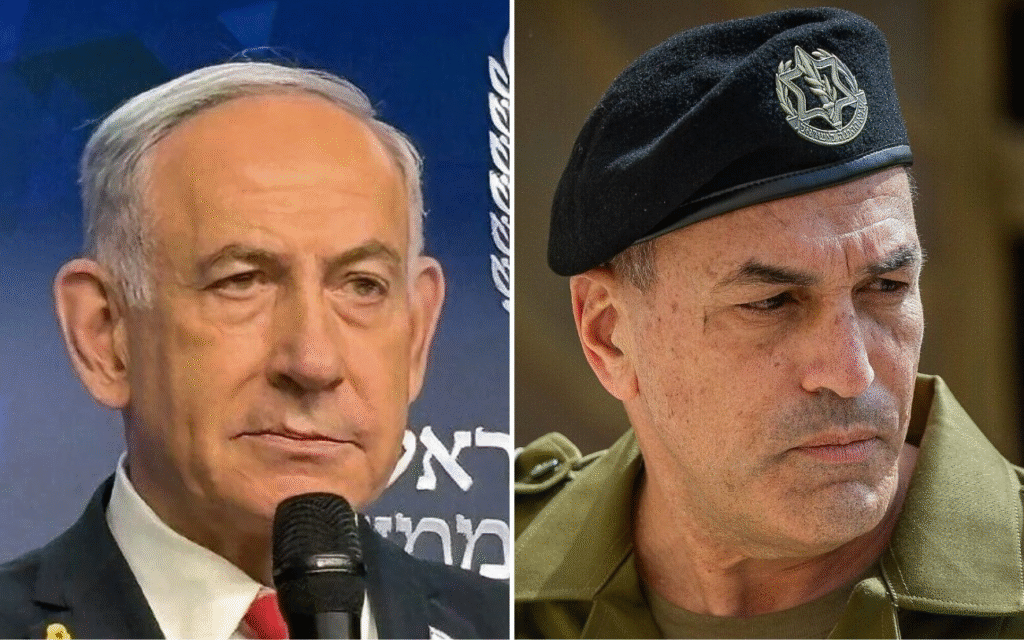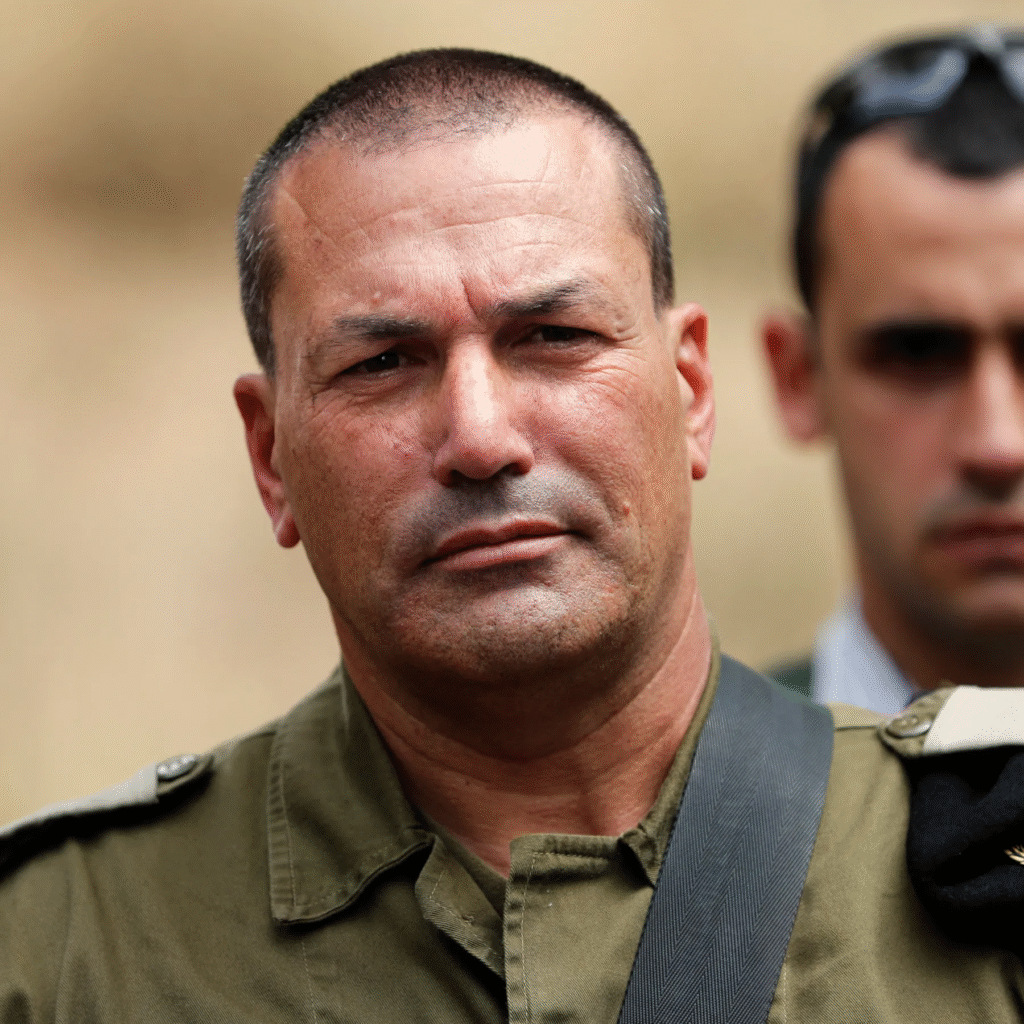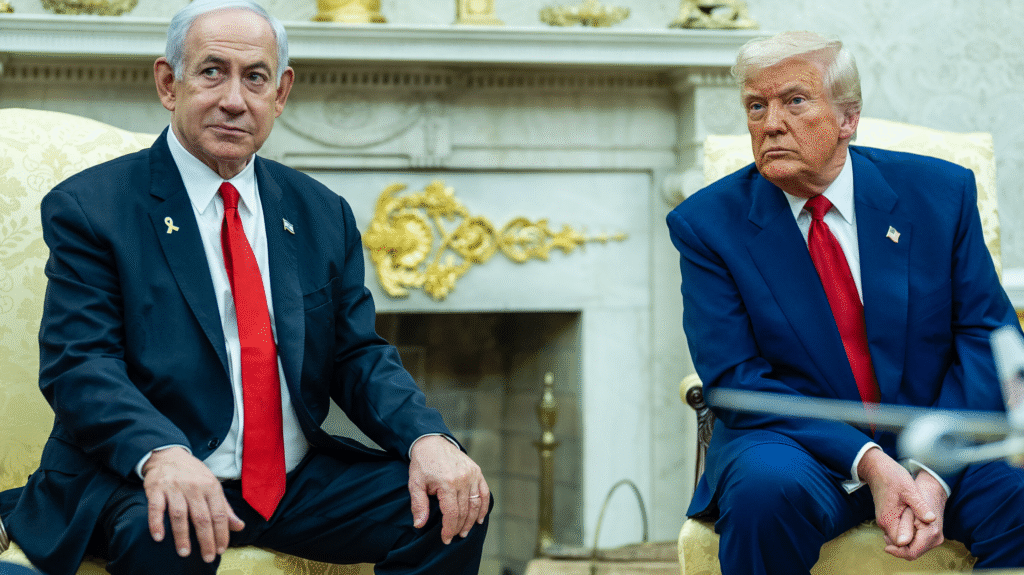
What Might Happen on the Ground in the Event of a Full Israeli Occupation of Gaza
Israel’s Expansion of Military Intervention in Gaza and the Road to Occupation
The stalled talks on August 3rd prompted growing voices within the Israeli government to support further expanding the military operation in the Gaza Strip. However, defense establishments expressed concern that the intensified military operations could lead to Hamas executing hostages and issued warnings of this.
Table Of Content
- Israel’s Expansion of Military Intervention in Gaza and the Road to Occupation
- What kind of plan does Israel follow in occupying Gaza?
- Israeli Opposition Reacts to Security Cabinet Approval of Government’s Gaza Occupation Plan
- Other Countries’ Reactions to the Occupation
- Conclusion
- Netanyahu’s Government Has Become a Minority
- What Might Happen on the Ground in the Event of a Full Israeli Occupation of Gaza
On August 4, an Israeli official announced that Israel is in dialogue with the US administration regarding the expansion of its military operation in Gaza to new areas.
On August 4, Israeli Prime Minister Benjamin Netanyahu decided to completely occupy the Gaza Strip. The decision was conveyed to Chief of General Staff Eyal Zamir, who was told, “If you do not agree, resign.” Defense officials opposed the expanded military operations because they feared harm would come to the hostages.

Senior Israeli officials: “Hamas will not release any more hostages unless we surrender, but we will not surrender. Central camps, previously denied entry for fear of hostages, will also be entered. If we do not act, the hostages will starve to death and Gaza will remain under Hamas control.”
Israeli security sources (on Netanyahu’s decision to fully occupy Gaza):
A partial hostage deal with Hamas was imminent. Israel was trying to do this, but it gave up too quickly. Israel frustrated its own efforts; Hamas was making things difficult, but the differences were not insurmountable.
Palestinian source on Netanyahu’s approval to invade Gaza: Israel’s threats come ahead of a new round of talks to be held in the coming days. Contact between the parties did not end for the talks to continue.The door is not closed for a partial agreement on Gaza. Hamas is under pressure from all sides, demanding flexibility.
Israeli Prime Minister Benjamin Netanyahu held a limited security meeting on August 5th, where he discussed war plans for Gaza with figures including Defense Minister Katz and Chief of General Staff Zamir.
Israeli Chief of Staff Eyal Zamir stated that expanding the operation in Gaza would make it more difficult to locate the hostages. The Chief of Staff and security agencies believe that operations in hostage-held areas would lead to their deaths.

On August 5, sources close to Israeli Prime Minister Netanyahu:
If the Chief of General Staff is against expanding the Gaza operation, he should resign. The Prime Minister’s intention is to capture the entire Gaza strip.
Israeli Chief of Staff Eyal Zamir opposed Prime Minister Netanyahu’s plan to invade Gaza, warning that “we will fall into a trap in Gaza.”
Netanyahu demanded that the military plans presented by Zamir for Gaza be developed and resubmitted to the cabinet.
Zamir got angry and said, “I already presented the plan, this is the plan.”
Zamir also complained that he had been subjected to public attacks from both the Prime Minister himself and his son, Yair Netanyahu.
Netanyahu said, “Don’t go to the press and threaten to resign,” while Zamir had hinted at resignation beforehand.
Netanyahu also said, “I do not accept your threats to resign every time we do not accept your plans.”
Regarding the plan to occupy the entire Gaza Strip, Zamir said, “This is a mistake that will harm the hostages, a strategic trap,” adding that this mistake will inflict damage on the Israeli army that will last for years.
Netanyahu said, “We will decide, and the decision is to capture the Gaza Strip.”
According to the Times of Israel, US President Trump declared that he would not intervene/oppose Israel’s plans to occupy the entire Gaza Strip, saying, “This is Israel’s decision.”

Israeli army sources said the invasion would have a heavy price tag; dozens of soldiers would die, a large number would be injured, and hostages could be harmed.
On August 6, Israeli government officials stated: “We doubt that Netanyahu truly wants to occupy the entire Gaza Strip. Many see this threat as merely a pressure tactic. Netanyahu will not fire Chief of Staff Zamir; a limited operation could be conducted to demonstrate resolve.”
Within Israel, both the government and the military opposed Netanyahu’s plan to invade Gaza, both because it could be negotiated with Hamas and to prevent the hostages from being harmed. Furthermore, the military argued that it would take Israel a very long time, perhaps even years, to fully capture Gaza.

A US official told Axios: The Trump administration does not support the annexation of parts of Gaza by Israel.
What kind of plan does Israel follow in occupying Gaza?
Israeli media:
- In the first phase of its plan to seize the entire Gaza Strip, Israel will issue evacuation orders to the population of Gaza City, approximately 1 million people.
- Civilian infrastructure, including hospitals and camps, will be established for Palestinians in the center of the Gaza Strip; this phase is expected to last several weeks.
- In the second phase, Israel will launch a military operation, and US President Trump will announce an acceleration of humanitarian aid distribution in coordination with Israel.
- As part of its new plan, Israel also intends to increase aid distribution centers in Gaza; US Ambassador to Israel Huckabee stated that the goal is to quickly establish 12 new centers in addition to the existing four.
- The US and other countries will invest approximately $1 billion to expand the distribution centers.
- This plan aims to ensure that Gazans benefit from aid not received by Hamas, while Gaza City comes under Israeli army control.
- The operation is expected to last 4-5 months and involve 4-5 divisions.
The aim is to push the Israelis away from Gaza and thus encourage a “voluntary exodus.”- Mediators Qatar and Egypt are trying to pressure Israel through the United States to prevent it from carrying out the plan.
- At the same time, they are calling on Hamas to continue negotiations.
Speaking to Fox News, Netanyahu stated that Israel aims to take control of all of Gaza and that they will hand it over to governments that are not Hamas or that do not support the destruction of Israel.
Israeli army officials, on the other hand, stated that it could take years to control the Gaza Strip, that a large number of people would need to be recruited to control the entire Gaza Strip, and that the army did not want to assume control of the Gazan people.
According to the New York Times, the Israeli army wants a ceasefire instead of a new operation in Gaza. Chief of Staff Eyal Zamir opposed Prime Minister Benjamin Netanyahu’s plan, saying the troops were tired and that an occupation of Gaza would force them to take over the administration of millions of Palestinians.
On August 7, Israeli Chief of General Staff Eyal Zamir strongly opposed the full occupation of the Gaza Strip at a security cabinet meeting.
Zamir: Occupying and clearing the Gaza Strip would take one to two years.
Entering the Strip and attacking infrastructure would create a humanitarian disaster.
The lives of the soldiers taken hostage would be endangered, and the operation could lead to the deaths of even more soldiers.
Speaking about the full occupation of Gaza at the Israeli security cabinet meeting, Prime Minister Netanyahu tried to convince Chief of General Staff Zamir by saying, “The operation is not irreversible, we can stop it if Hamas accepts the conditions.”
On August 8, the Israeli security cabinet approved Prime Minister Netanyahu’s plan to occupy the entire Gaza Strip.
Israeli Opposition Reacts to Security Cabinet Approval of Government’s Gaza Occupation Plan
Yair Lapid: “This decision is a disaster that will lead to further disaster. It was made completely against the will of the military and security institutions. Ben-Gvir and Smotrich have forced Netanyahu into a move that will last months, that will lead to the deaths of hostages and the deaths of countless soldiers. This is exactly what Hamas wanted: to have Israel trapped on the ground in a pointless occupation without a goal, without a clear plan for what will happen after the war, and with no one understanding where it will lead.”
Avigdor Liberman: “Life-and-death decisions are being made in a way that doesn’t reflect security assessments or war aims. The Prime Minister of October 7th is once again sacrificing the safety of Israeli citizens to save his seat.”
Yair Golan: “More hostages will be left to die. Netanyahu is weak, easily pressured, lacks decision-making skills, and lacks the capacity to bridge the gap between what he presents professionally and the messianic group that controls the government. This decision will be a disaster that will last for generations.”
Other Countries’ Reactions to the Occupation
Egypt has warned Netanyahu’s government that Israel’s plan to completely occupy Gaza would lead to the execution of hostages. Hamas members holding the hostages have been ordered to execute them if they remain sieged and there is no chance of escape alive.
US Secretary of State Rubio:
- Israel will decide what Israel will do for Israel’s security. Hamas is emboldened by messages about recognizing the state of Palestine.
- I agree with Netanyahu; recognizing the state of Palestine would reward Hamas.
- The issue is not establishing a Palestinian state; the issue is determining its borders and who will govern it.
US President Trump: “Retrieving the hostages will be difficult anyway, because Hamas won’t release them anyway under the current circumstances.”
Israel must decide what to do next and whether Hamas can stay in Gaza. In my opinion, it can’t.
I have only one thing to say: Remember October 7th.
Agreement Studies Between Two Sides
Egypt and Qatar are working on a new deal under which all live hostages and bodies held by Hamas would be handed over to Israel at once, Israeli troops would withdraw from Gaza, and the war would end.

- The agreement includes a “freeze” of Hamas’s weapons; that is, Hamas will not surrender its weapons, but will not use them either.
- Furthermore, Hamas will hand over control of the Gaza Strip, which will be administered by a Palestinian-Arab committee.
- Police forces, trained by two of the US’s Middle East allies, will then take over the Gaza Strip under a new Palestinian administration.
On August 8, Chief of General Staff Zamir’s stance began to change, but his position remained unchanged. Zamir announced that the Israeli army was working on a new plan, that the planning had changed, and that preparations were at the highest level. Israeli Chief of General Staff Eyal Zamir accused Prime Minister Netanyahu of putting Israeli soldiers in a “death trap.” According to the Israeli army, 250,000 reserve soldiers would need to be called into service for the complete capture of Gaza.
According to Walla News, the US is pressuring Israel to prevent a full occupation of the Gaza Strip and reach an agreement. Trump wants to make a new offer.
Israeli sources said Israel might cancel or postpone its Gaza invasion plan if Hamas were willing to make serious concessions to make progress on the ceasefire and hostage talks. Palestinian sources, however, said Hamas’s willingness to make progress in the talks depended on Israel canceling its Gaza invasion plan.
Conclusion
The Israeli government, particularly figures like Netanyahu and Ben-Gvir, is committed to the Gaza invasion plan and its plan to control the strip. However, army sources and Chief of General Staff Zamir strongly oppose the operation, citing its tiring nature, excessive time-consuming nature, and the difficulty of controlling the area.
The US, on the other hand, is caught in a dilemma. While supporting the operation, the US also states that it will not be possible as claimed and that an agreement would be better.
Egypt, Qatar and other mediators believe that the Israeli government and Hamas can reach an agreement and are working on it.
Netanyahu’s Government Has Become a Minority
Another Haredi party in Netanyahu’s coalition resigned from the government. On July 16, Shas, one of the ultra-Orthodox Jewish (Haredi) parties in Israeli Prime Minister Benjamin Netanyahu’s coalition, decided to resign from the government due to disagreements over a law that would exempt Haredim from military service.
This decision left Netanyahu’s government, which recently lost another Haredi coalition partner, a minority government with 50 deputies in the 120-seat parliament. However, despite the Shas Party’s withdrawal from the coalition, it was announced that it would not support any opposition attempt to overthrow the government.
Netanyahu breathed a sigh of relief when the Israeli Parliament recessed on July 27.
Following this, Yair Lapid, leader of the main Israeli opposition party, the Future is Here, said in a video message that “with the Netanyahu government becoming a minority government, it will not be able to send soldiers to war and will not be able to decide who lives and who dies.”
Lapid stated that the Netanyahu government cannot determine the future of Gaza, that it cannot sign an agreement with Syria or Saudi Arabia, and that the Netanyahu government “has no more power, no more rights, and is an illegitimate government.”
“Now is the time for elections,” said Israel’s main opposition leader.
What Might Happen on the Ground in the Event of a Full Israeli Occupation of Gaza
- Humanitarian Crisis and Hunger
After the evacuation of more than 1 million people, infrastructure could collapse and the flow of essential food and medicine could be cut off.
If tent camps and aid centers remain inadequate, the risk of hunger and epidemics among the population increases.
- Hostage Crisis and Executions
Hamas may resort to mass executions of its hostages in response to the invasion attempt.
This situation could lead to a major social trauma and political crisis within Israel.
- The Strengthening of Hamas
Israel’s land occupation provides Hamas with the basis for its “resistance” propaganda.
Hamas could gain more supporters and strengthen its underground if the occupation lasts longer.
- The Attrition of the Israeli Army
A complete occupation of Gaza could take years, during which time the Israeli army would suffer high military losses and demoralization.
Keeping nearly 250,000 reserve soldiers in the field for extended periods of time creates serious pressure on Israeli domestic politics.
- Administrative Deadlock in Gaza
If Israel takes control of Gaza, the governance of millions of Palestinians will be on the agenda.
The Israeli army will not want to take on this burden, the Palestinian administration structure will collapse and an authority vacuum will arise.
- New Wave of Immigration
Israel’s intense operations in central Gaza could force the population into “voluntary migration.”
This situation would lead to a major refugee crisis on the Egyptian border and increase Cairo’s reaction.
- Regional Tension and Border Conflicts
Prolonging the occupation of Gaza could lead to the mobilization of Hezbollah in Lebanon or groups in the West Bank.
This would put Israel at risk of a multi-front war.
- Cracks in US-Israel Relations
Although Washington initially supported the situation, tensions may arise in US-Israel relations following the prolonged occupation and increasing civilian casualties.
Trump’s “supportive” statements may not last; the US may demand Israel back down under international pressure.
- International Isolation
If high civilian casualties occur during Israel’s occupation, many countries, especially the UN and Europe, may impose harsh sanctions.
Israel began to be criticized more in the international community as an “occupying power.”
- Long-Term Chaos and Uncertainty
If the occupation extends over many years, neither Israel nor the Palestinians will benefit; Gaza will become a permanent zone of conflict.
This situation will also shake the balance in the Middle East and destabilize the region.




